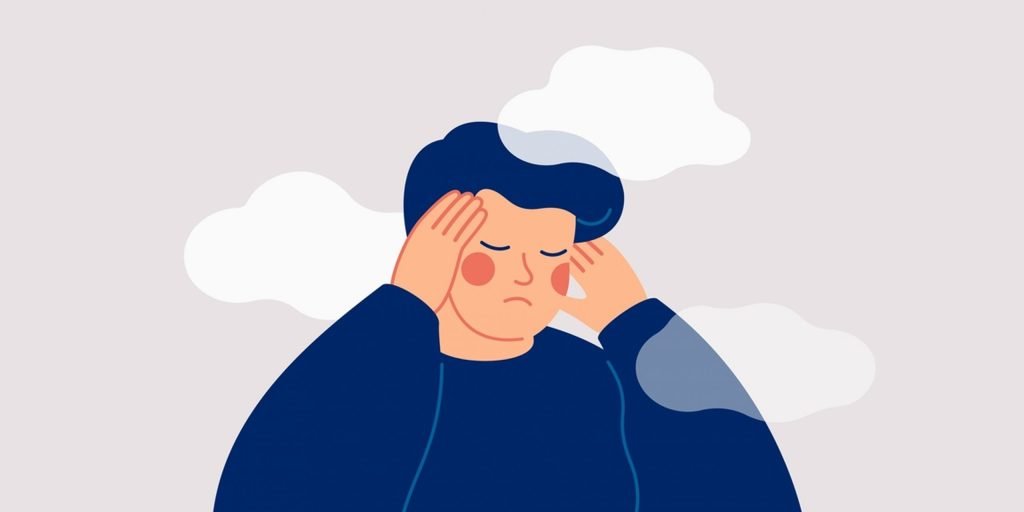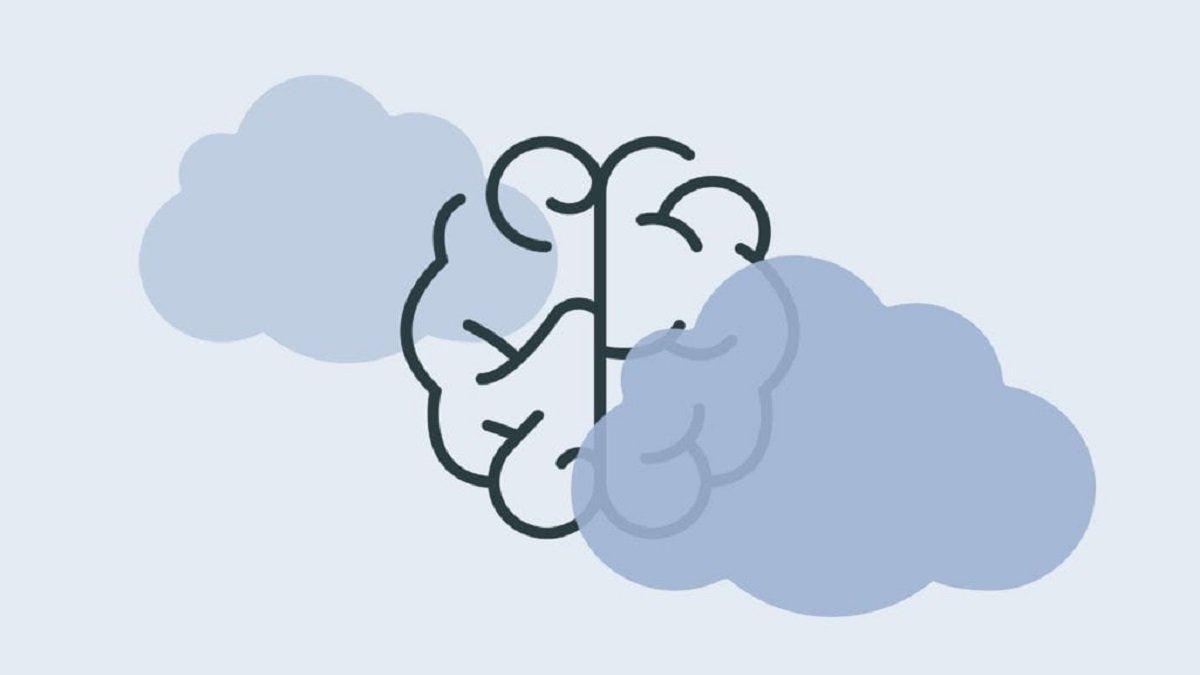You may not have realized how effortlessly you could spin a sentence or identify that actor, restaurant, or fourth-grade teacher when you were younger—or simply a child and carefree. However, as you age, your brain may not be as quick. You could also struggle to find the proper words or recall the name of that man who was in that program about that thing. Add to that a bad diet, cerebral overload from the never-ending news cycle, stress, or outright anxiety. There are ways to eliminate your brain fog if you are suffering from it.
This condition, known as “brain fog,” may be quite unsettling and cause anxiety, causing you to feverishly search Google for solutions. The good news is that you can typically get your brain back on track by making the appropriate lifestyle modifications.
How To Eliminate Brain Fog

1. Have Quality Sleep
Having quality sleep is one of the ways to eliminate your brain fog. Memory consolidation and cognitive performance depend on sleep. Aiming for 7 to 9 hours of good sleep each night can assist in making sure your brain is rested and prepared for the day.
This is so that the body and brain can remain healthy, which depends on sleep. Getting enough sleep improves mood, reduces stress, and facilitates clearer thinking. Thinking slowly may be caused by both stress and mood.
It’s not always easy to get a good night’s sleep, but there are a few things you can do to help create the right environment. Initially, we attempted to go to bed and get up around the same time every day. This aids in maintaining the circadian rhythm, an internal “clock” that controls the cycles of wakefulness and sleep.
Reducing the amount of food and liquids you consume before bed may also be beneficial. Before going to bed, putting electronics away and avoiding bright lights may help you get a good night’s sleep. Furthermore, it’s preferable to get out of bed and do something soothing rather than laying in bed worrying if you’ve been attempting to go to sleep for longer than twenty minutes. You may, for instance, do yoga poses or read a book until you nod off.
2. Know The Source
Finding the root causes of brain fog can enable you to treat it more successfully. Temporary stressors, such as a major project at work, might exacerbate mental exhaustion. These factors are often rather simple to identify.
If, however, you’ve been struggling with stress or anxiety for some time, you may find it more difficult to identify the source of your problems. Working with a therapist might be quite beneficial if you’re having trouble figuring out what’s causing all of the background noise in your head.
3. Take A Break
Taking a real break can be an answer to how to get rid of brain fog. Have you ever had the feeling that, despite your best efforts, you were unable to concentrate on a task?
According to a study, trying harder isn’t the answer. It may be wise to give up for a while. Taking a break and walking away from a task may significantly increase your performance, attentiveness, and level of self-control. But not every mental break is equal. Alternative forms of relaxation were more successful in allowing the brain to recharge than reaching for a mobile phone.
4. Know Your Physical Needs
Insufficient food intake or improper nutritional intake might cause concentration problems. When you’re under stress, you may find it too exhausting to cook healthy meals and instead go for fast food or snacks. These meals usually don’t have a lot of nutrients that increase energy. They may have the opposite effect, leaving you feeling drained and listless.
Anxiety may also be a factor in gastrointestinal issues that interfere with eating regularly. You may get nauseated at the mere mention of eating if you miss a few meals, which may further deplete you.
5. Monitor Your Sugar Intake
Tracking your sugar intake is one of the most effective ways to eliminate your brain fog. Although refined carbs like sugar and high fructose corn syrup are bad sources of fuel, your brain requires glucose or sugar. Too much glucose is first released into your brain, followed by too little.
A low blood sugar level in the brain causes mental disorientation, mood fluctuations, fatigue, irritation, and poor judgment. Conversely, elevated blood glucose levels result in diabetes and insulin resistance, which have both been connected to Alzheimer’s disease.
6. Stay Hydrated & Have Proper Diet
While treats like sweets and chips might give you a little mental boost, maintaining a balanced diet can improve your performance throughout the day. It’s not necessary to make big adjustments immediately. Make healthy additions to your meals and snack times to begin with, rather than cutting out the “unhealthy” things you now consume.
Antioxidant-rich foods, including oranges, almonds, and blueberries, assist in lowering oxidative stress in the body, which may benefit the body and brain. Fish is another nutrient-dense food for the brain. Experts say that a diet rich in omega-3 fatty acids, such as fish, has been linked to decreased rates of cognitive impairment.
It’s crucial to maintain hydration as well. Recall that around 75% of the brain is made of water! According to a study, mood and memory might be impacted by dehydration. Generally speaking, you should drink enough water to make your urine clear or pale yellow.
7. Exercise
Doing ample exercise can be an answer to how to get rid of brain fog. For adults, the National Heart, Lung, and Blood Institute recommends 150 minutes of moderate-intensity aerobic exercise each week to maintain the health of both the heart and the brain.
The brain receives more blood as it exercises. Additionally, studies reveal that exercise alters the brain by increasing gray matter and brain-derived neurotrophic factor, a chemical involved in the formation of neuronal connections in the brain that are linked to memory and learning, according to MedlinePlus.
Working up a sweat may improve your memory, executive control, and attention. In addition, many individuals find that exercise is a terrific way to decompress, and a new study indicates that exercise increases cognitive reserves, which support the development of a more robust brain as you age.
8. Visit A Therapist
All of these techniques may assist you in managing brain fog more effectively, but they are not a permanent fix for worry. Although there is no known treatment for anxiety, speaking with a therapist may provide you with a greater understanding of your triggers and help you develop effective coping mechanisms.
Since they don’t feel unduly concerned about anything in particular, many people with anxiety disorders are unaware that they are experiencing worry. Though they might vary greatly, anxiety symptoms often entail both emotional and physical sensations.
Reaching out is always a good idea, as a therapist may assist you in identifying and exploring the sources of any inexplicable emotional issues. Depression may also cause brain fog, so it’s important to get help as soon as you feel hopeless, depressed, or have suicidal thoughts. A qualified expert, such as a therapist or crisis counselor, can help.
Causes Of Brain Fog
There are several causes for brain fog. Upon identifying the root problem, you may start finding ways to eliminate your brain fog. These are a few potential reasons:
Stress: An assessment of research found that long-term stress may lead to depression, lower immunity, and raised blood pressure. It may also result in mental exhaustion. It is more difficult to reason, concentrate, and think clearly when your brain is fatigued.
Inadequate Sleep: Research indicates that getting poor-quality sleep might affect how effectively your brain works. Generally speaking, 8 to 9 hours of sleep every night should be the target. Insufficient sleep may cause disorientation and impure thinking.
Hormonal changes: Brain fog may also be brought on by hormonal fluctuations. Progesterone and estrogen levels rise while a woman is pregnant. This alteration may result in short-term cognitive impairment and memory problems. According to a study, a decrease in estrogen levels after menopause may also result in foggy thinking, poor focus, and forgetfulness.
Improper Diet: Brain fog may also be influenced by diet. B12 helps maintain normal brain function. Brain fog might result from a vitamin B12 deficit that impairs cognitive function. Brain fog may appear if you have dietary sensitivities or allergies after consuming certain meals.
Medications: Consult your doctor if you have cognitive impairment while taking medicine. Certain drugs, including several sleep aids and pain relievers, have been linked to brain fog as a side effect. Reducing the dose or trying a different medication could help with your problems. Following cancer therapies, brain fog may also happen. People call this “chemo brain.”
FAQ
Q: What is the duration of brain fog?
A: It often goes away entirely six to nine months after the infection; however, in rare cases, it may linger up to 18 months or more. Researchers are still unsure of the exact etiology of long-term COVID-19 brain fog.
Q: Brain fog is treated by whom?
A: Initially, report your symptoms to your primary care physician (or neurologist, if applicable) if cognitive impairment is impeding your day-to-day functioning. Most likely, a neuropsychologist will be consulted to do a thorough evaluation of your cognitive and psychological functioning.
Q: Can brain fog be caused by infections?
A: People are becoming more used to the increasingly prevalent symptom of brain fog, particularly in cases where long-term COVID-19 infections are the cause. Furthermore, even though it may be a topic of greater discussion, there is still much to learn about it from a medical perspective.











